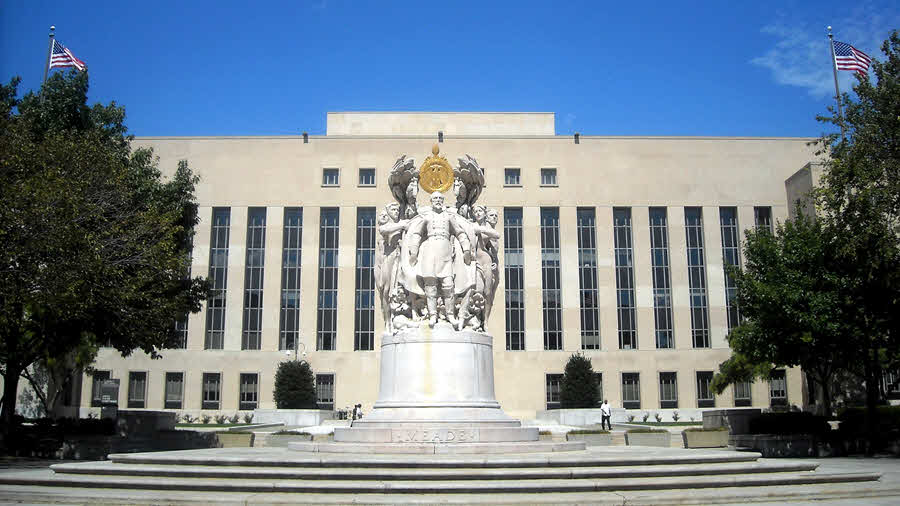Journalists Make Case for Trump Interference in AT&T-Time Warner Deal

The smarter way to stay on top of broadcasting and cable industry. Sign up below
You are now subscribed
Your newsletter sign-up was successful
Journalists are telling a federal court that there were solid reasons to believe that President Donald Trump's animus toward CNN played a role in the Administration's attempt to block the merger of CNN parent Time Warner with AT&T and that a lower court should have allowed that "selective enforcement" defense to be introduced and evidence of that claim presented.
That came in an amicus brief filed with the U.S. Court of Appeals for the District of Columbia in the Justice Department's appeal of that lower court ruling, which ultimately went in favor of AT&T and Time Warner, but did not include discovery on the issue of whether the President's concern about a media critic translated to DOJ's opposition to the merger.
The Reporters Committee for Freedom of the Press filed the brief, a group that brands the President an existential threat to press freedom, a position shared by other journalist organizations. It said that the President had repeatedly attacked both CNN and the merger, and that there were "indications" the White House sought to "interfere" with the decision to sue.
Related: AT&T Says DOJ's Fragile Case Against Time Warner Merger Doesn't Hold Up
It told the court that the merger challenge was launched "in the context of a broader 'war' on the media by the president," and that the standard the lower court used to deny the discovery could make it hard for news organizations to obtain discovery in future cases where the Trump Administration "selectively enforces antitrust or other complex regulations or laws to punish negative--or coerce positive--news coverage.
The Reporters Committee said that the court should have been even more eager to allow discovery in a selective enforcement allegation regarding censoring the press, which raises "special concerns" given that an "invidiously motivated prosecution or lawsuit could directly censor protected speech."
The lower court, in declining to allow discovery of the selective enforcement argument, said that it was hard to "conceptualize" such a defense in antitrust cases. But the committee pointed to Lyndon Johnson's finger on the scales of a merger and Richard Nixon's use of a threat to sue the networks to try and "coerce" better coverage.
The smarter way to stay on top of broadcasting and cable industry. Sign up below
"Where the threat of regulatory retaliation is anything but subtle, and the desire to coerce favorable news coverage is well-documented, discovery into improper motive is more than warranted."
President Trump has suggested the FCC looking into pulling the licenses of his media critics.
"[I]t would be difficult to conceive of a more direct admission of hostility than the raging rhetoric from the White House attacking CNN for coverage that the administration perceives as unfavorable," he said. "Amicus asks the Court to confirm that this is precisely the type of case where direct admissions of improper motive by, in this case, the chief executive of the country, justify discovery without a showing of selectivity."
Contributing editor John Eggerton has been an editor and/or writer on media regulation, legislation and policy for over four decades, including covering the FCC, FTC, Congress, the major media trade associations, and the federal courts. In addition to Multichannel News and Broadcasting + Cable, his work has appeared in Radio World, TV Technology, TV Fax, This Week in Consumer Electronics, Variety and the Encyclopedia Britannica.

